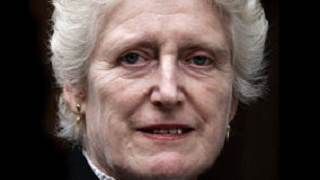Peers issue joint warning over assisted suicide Bill

Three of Britain’s most senior legal authorities have issued a stark warning over the dangers to public safety presented by Lord Falconer’s assisted suicide Bill, saying it would be a ‘blank cheque’ for euthanasia.
The Bill, which had its first reading in the House of Lords in May this year, aims to introduce assisted suicide for “mentally competent” adults who are given less than six months to live and have a “clear and settled intention” to end their lives.
Baroness Butler-Sloss, the former head of the High Court Family Division, Lord Carlile QC and Lord Brennan QC warned that the proposals would leave the most vulnerable people at risk, and would deny society the ability to use the law to discourage suicide.
“Blank cheque”
In a paper published by the campaign group Living and Dying Well, the three peers said that the Bill would represent a “fundamental change” to the law and would make it lawful for doctors to “involve themselves in deliberately bringing about the deaths of others”.
“As it stands, the bill is asking Parliament to sign a blank cheque,” it said.
“We should not forget that public safety is itself a key principle of legislation: it cannot be offloaded onto others.
“The law exists not only, or even primarily, to punish offenders but also to indicate those actions of which, as a society, we disapprove.”
Aiding suicides
It went on to say: “One of those actions is aiding and abetting other people's suicides.
“Licensing doctors to supply lethal drugs to some of their patients to facilitate their suicides would represent a major change to the criminal law.
“If Parliament is to be asked to give serious consideration to such proposals, it needs clear evidence that the law as it stands is not fit for purpose. No such evidence has been produced.”
Above the law
Commenting on the Bill, Dr Peter Saunders from the Christian Medical Fellowship said:
“If this bill, should ever become law, all doctors will have to do, for any given case, is to say that it was their ‘genuine view’ that the conditions applied and no court will be able to touch them. In Falconer’s own words, they will have ‘absolutely nothing to worry about.’”
He added: “Can we imagine any other group being given this level of professional freedom by an Act of Parliament? Can we imagine, for example, a motorist avoiding prosecution by arguing that it was his ‘genuine view’ that he was not exceeding the speed limit? Or a policeman pleading that it was his ‘genuine view’ that the innocent man he just shot was a wanted criminal? Or a politician saying that it was his ‘genuine view’ that he was not fiddling his expenses? Such a position in any other circumstances would make a mockery of the law.”
He concluded: “If Falconer’s bill actually does what he claims it does it will be both unworkable and unenforceable. All a doctor will need to do to extend its provisions will be to argue that it was his ‘genuine view’ that a demented patient was mentally competent, that a disabled person had less than six months to live or that a 15 year old was really 18.”
The Bill is due to return for a second reading in Spring 2014.
Sources:
